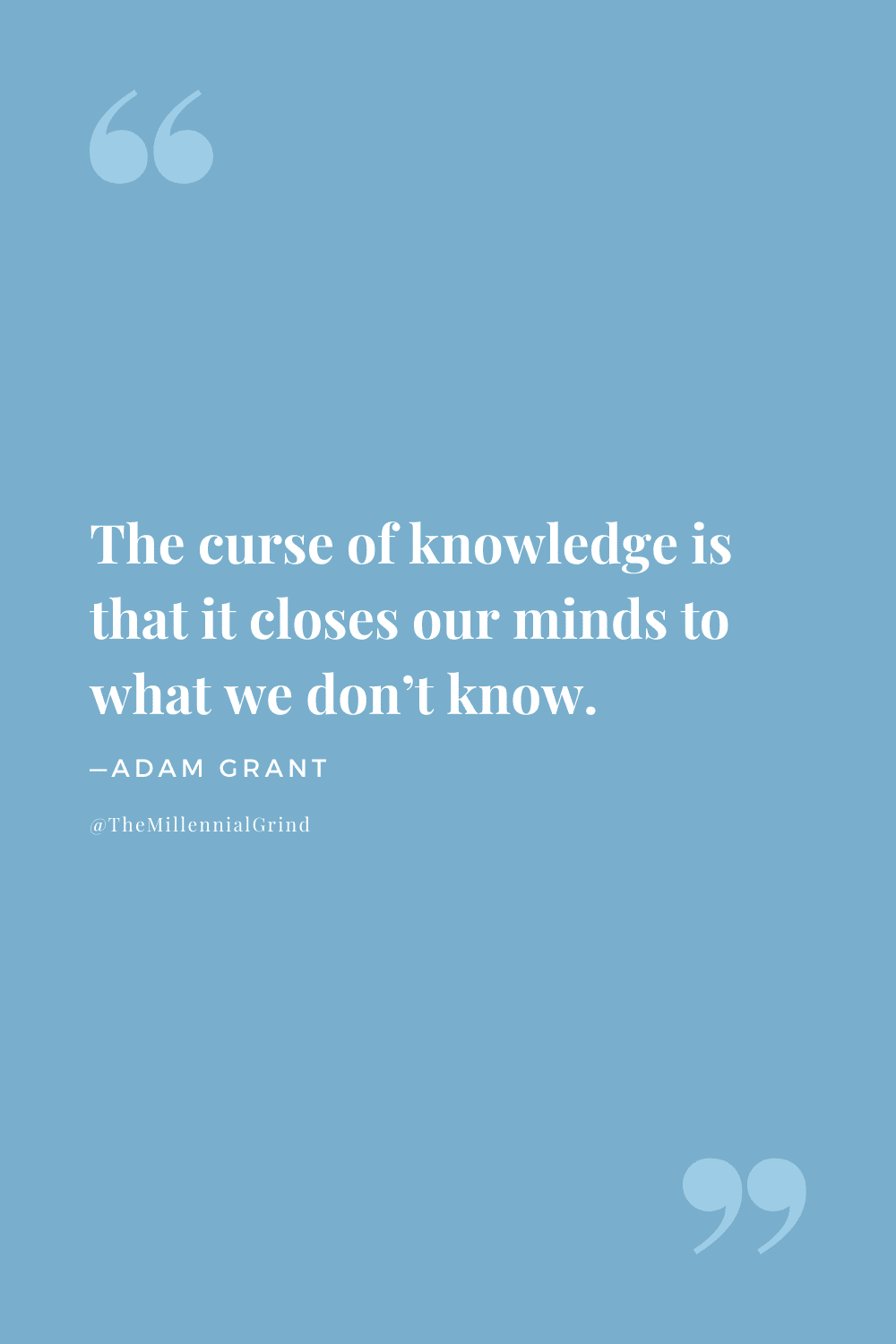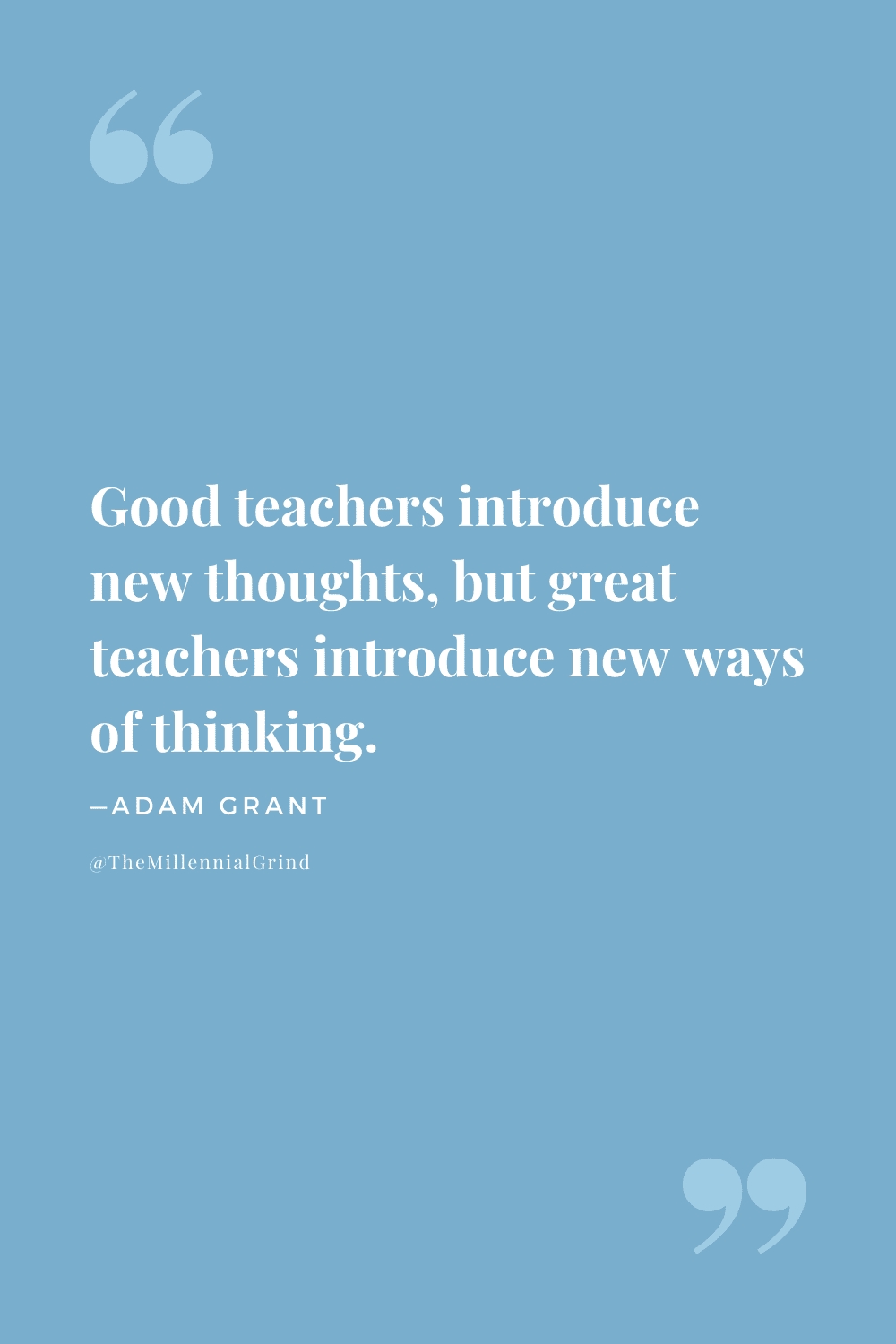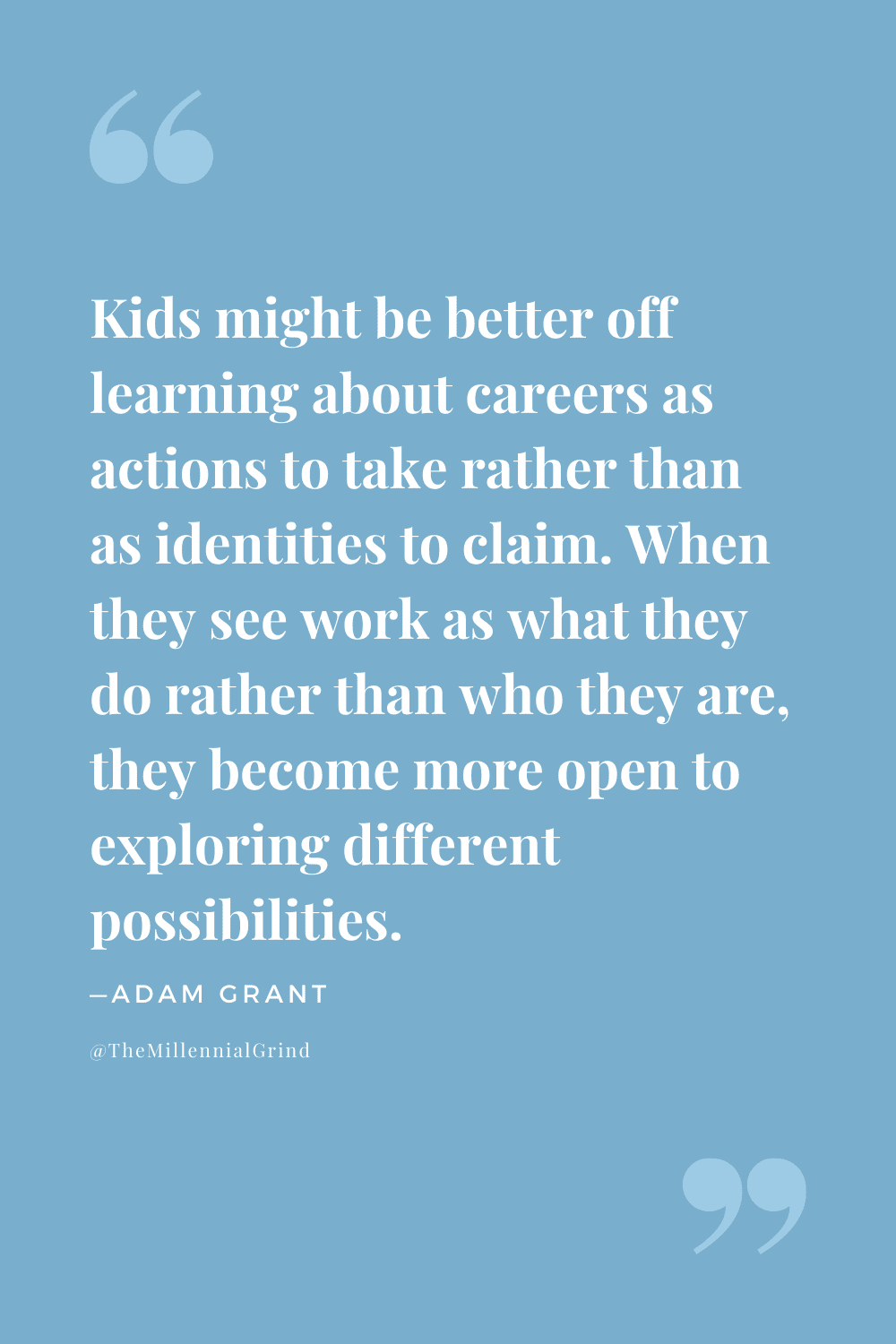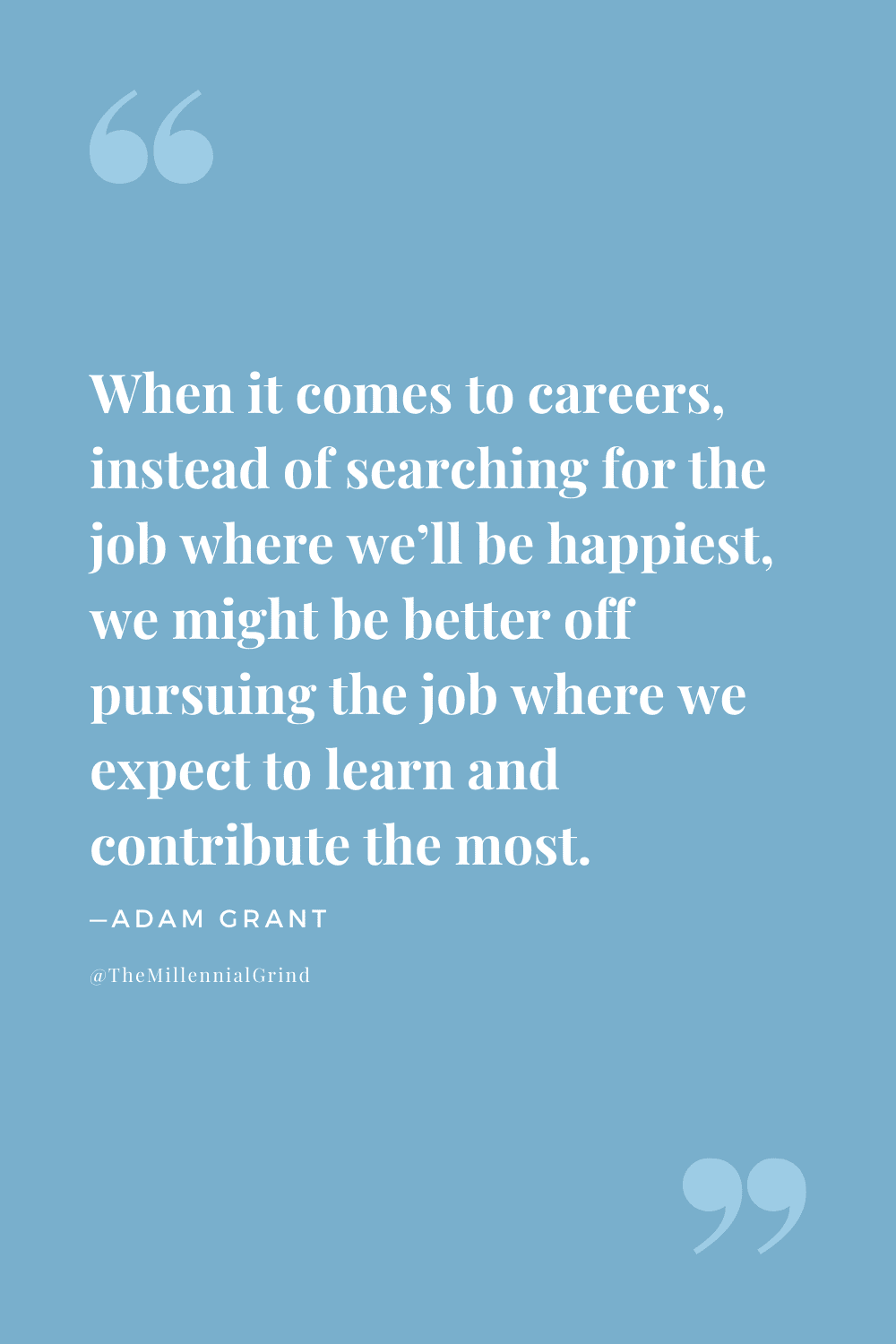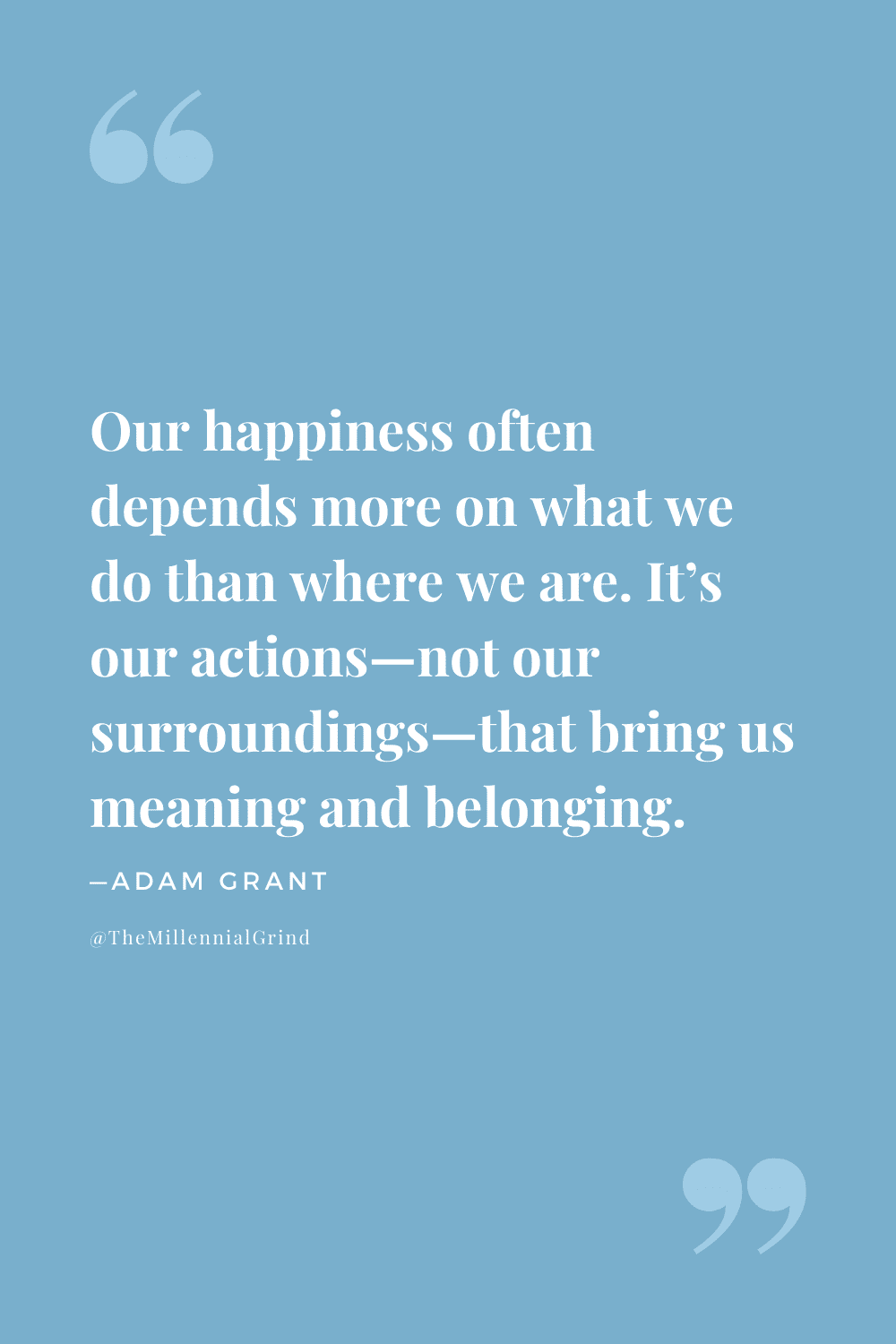Think Again by Adam Grant reveals that we don’t have to believe everything we think or internalize everything we feel.
This book examines the critical art of rethinking: learning to question your opinions and open other people’s minds, which can position you for excellence at work and wisdom in life.
Think Again is an invitation to let go of views that are no longer serving us well and prize mental flexibility over foolish consistency. If knowledge is power, knowing what we don’t know is wisdom.
Scroll down and read 30 quotes from Think Again by Adam Grant.
Get The Book: Think Again by Adam Grant available now on Amazon.
30 Quotes from Think Again by Adam Grant
Once we hear the story and accept it as true, we rarely bother to question it.

Thinking again can help you generate new solutions to old problems and revisit old solutions to new problems. It’s a path to learning more from the people around you and living with fewer regrets.
A hallmark of wisdom is knowing when it’s time to abandon some of your most treasured tools—and some of the most cherished parts of your identity.
Rethinking is a skill set, but it’s also a mindset. We already have many of the mental tools we need. We just have to remember to get them out of the shed and remove the rust.
The curse of knowledge is that it closes our minds to what we don’t know.

Good judgment depends on having the skill—and the will—to open our minds.
We all have blind spots in our knowledge and opinions. The bad news is that they can leave us blind to our blindness, which gives us false confidence in our judgment and prevents us from rethinking.
Confidence is a measure of how much you believe in yourself.
Arrogance leaves us blind to our weaknesses. Humility is a reflective lens: it helps us see them clearly. Confident humility is a corrective lens: it enables us to overcome those weaknesses.
Good teachers introduce new thoughts, but great teachers introduce new ways of thinking.

Every time we encounter new information, we have a choice. We can attach our opinions to our identities and stand our ground in the stubbornness of preaching and prosecuting. Or we can operate more like scientists, defining ourselves as people committed to the pursuit of truth—even if it means proving our own views wrong.
Strong leaders engage their critics and make themselves stronger. Weak leaders silence their critics and make themselves weaker.
Collecting a teacher’s knowledge may help us solve the challenges of the day, but understanding how a teacher thinks can help us navigate the challenges of a lifetime.
Ultimately, education is more than the information we accumulate in our heads. It’s the habits we develop as we keep revising our drafts and the skills we build to keep learning.
Kids might be better off learning about careers as actions to take rather than as identities to claim. When they see work as what they do rather than who they are, they become more open to exploring different possibilities.

We don’t know how time and circumstances will change what we want and even who we want to be, and locking our life GPS onto a single target can give us the right directions to the wrong destination.
Choosing a career isn’t like finding a soul mate. It’s possible that your ideal job hasn’t even been invented yet.
When we pursue happiness, we often start by changing our surroundings. We expect to find bliss in a warmer climate or a friendlier dorm, but any joy that those choices bring about is typically temporary.
It takes humility to reconsider our past commitments, doubt to question our present decisions, and curiosity to reimagine our future plans. What we discover along the way can free us from the shackles of our familiar surroundings and our former selves.
When it comes to careers, instead of searching for the job where we’ll be happiest, we might be better off pursuing the job where we expect to learn and contribute the most.

Our identities are open systems, and so are our lives. We don’t have to stay tethered to old images of where we want to go or who we want to be. The simplest way to start rethinking our options is to question what we do daily.
Whether or not we have the opportunity or appetite for major changes in our lives, it’s still possible to make smaller adjustments that breathe new meaning into our days.
To adapt an analogy from E. L. Doctorow, writing out a plan for your life “is like driving at night in the fog. You can only see as far as your headlights, but you can make the whole trip that way.”
Psychologists find that passions are often developed, not discovered.
Our happiness often depends more on what we do than where we are. It’s our actions—not our surroundings—that bring us meaning and belonging.

We don’t have to upend our entire paths to rethink some of our plans.
At work and in life, the best we can do is plan for what we want to learn and contribute over the next year or two, and stay open to what might come next.
Interest doesn’t always lead to effort and skill; sometimes it follows them. By investing in learning and problem solving, we can develop our passions—and build the skills necessary to do the work and lead the lives we find worthwhile.
We can all improve at thinking again. Whatever conclusion we reach, I think the world would be a better place if everyone put on scientist goggles a little more often.
Rethinking liberates us to do more than update our knowledge and opinions—it’s a tool for leading a more fulfilling life.

Which quote from Think Again by Adam Grant is your favorite?
READ NEXT: 30 Best Quotes From Think Like A Monk By Jay Shetty

